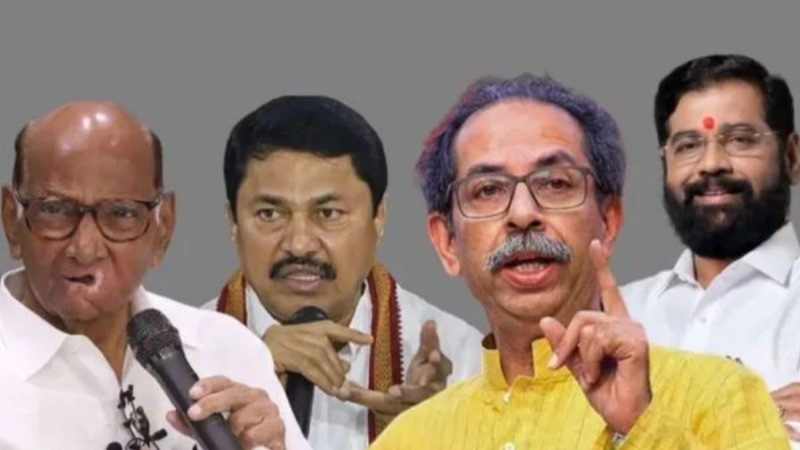
As Maharashtra prepares for the 2024 Assembly Elections, political parties are intensifying their efforts to engage with voters, focusing on caste dynamics and the Muslim community. The Mahavikas Aghadi is reportedly considering the appointment of a Muslim deputy chief minister to attract this crucial voter base.
With the election countdown underway, parties are strategically planning to appeal to a wide range of voters. One notable aspect of the Mahavikas Aghadi's strategy is its effort to secure support from the Muslim demographic, which has shown significant backing for the alliance in recent elections, particularly in areas with high Muslim populations.
The coalition is also implementing broader initiatives to engage diverse voter groups. Proposals such as free education for girls and environmental projects reflect a comprehensive approach to resonate with the electorate. Additionally, leveraging Bollywood celebrities and recognizing Ratan Tata with the Bharat Ratna indicate a blend of policy initiatives and celebrity appeal aimed at capturing public interest leading up to the elections.
Recent elections in Haryana and Jammu & Kashmir have showcased a trend of Muslim voters aligning with the Congress party. For instance, all elected Congress MLAs in Jammu and Kashmir belong to the Muslim community, underscoring the party's strong connection with these voters. This trend highlights the strategic significance of the Muslim electorate in Maharashtra, where significant turnout was observed against the Mahayuti alliance in Dhule and parts of Mumbai.
Criticism has arisen, particularly from BJP leader Amit Malviya, who accused Congress of catering to Muslim interests, likening it to "the new Muslim League." This critique points to a growing Hindu voter inclination towards the BJP, especially in regions like Jammu, while Muslim voters in the Kashmir Valley seem to favor Congress and the National Conference. Such claims underscore the polarized nature of the electorate, with religious affiliations increasingly influencing voter behavior.
The shift of Hindu voters, especially those previously aligned with Uddhav Thackeray, toward Eknath Shinde has prompted the Mahavikas Aghadi to reassess its strategy to secure Muslim votes. The importance of the Muslim electorate is recognized by Thackeray's party and Sharad Pawar's NCP, which have traditionally enjoyed strong support from Muslim-majority areas. Some Muslim leaders have even called for greater legislative representation, advocating for 40 seats to deter community shifts toward parties like MIM or Vanchit Bahujan Aghadi.
Amid these strategic shifts, controversies have arisen, including demands to arrest individuals for actions perceived as offensive to Hindu sentiments and opposition to the Waqf Amendment Bill. These issues have stirred political discussions, likely influencing the Mahavikas Aghadi's engagement with the Muslim community and the potential for a Muslim deputy chief minister.
In parallel, the NDA government's announcement of development projects worth ₹7,600 crore for Maharashtra and tributes to influential figures like Ratan Tata by politicians, including PM Modi and Fadnavis, reflect a concerted effort to sway voter sentiment as the elections draw near.
The political landscape in Maharashtra is thus charged with moves and countermoves, focused on religious dynamics, caste equations, and past voter loyalties. As parties navigate these complexities, the ultimate decision lies with the electorate, poised to shape Maharashtra's political future in the upcoming 2024 assembly elections.